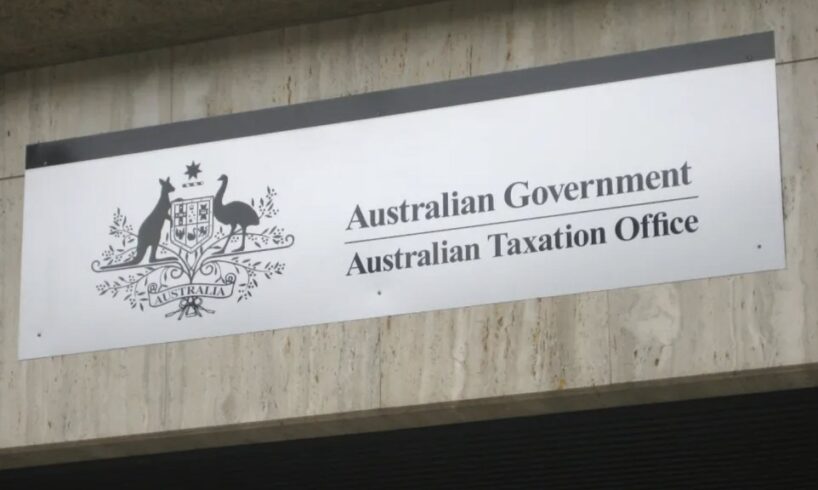
Company tax data from 2023-24 has just been released, and while the government says it shows a higher level of tax compliance from large corporations, it offers more of the same as previous years: a number of very big corporations making billions of dollars from Australian markets paying little or no tax.
The usual suspects are all there: News Corp, which hasn’t paid a cent in tax since a token payment of $8 million nearly a decade ago, increased its profit in Australia from 2022-23 by around 50% to $299 million, off $1.8 billion in earnings, but didn’t pay any tax at all — not that its long-term refusal to pay tax in Australia deters this foreign-owned company from lecturing Australians about how they ought to conduct themselves and whom they should vote for.
Long-term freeloader Transurban yet again paid no tax on over $3 billion in earnings. Fossil fuel giant Santos paid no company tax on $8 billion of gas revenue, claiming it only made $21 million in profit. Optus’ owner SingTel, a confirmed tax dodger, paid nothing on $8 billion of revenue — little of which evidently made its way into its infrastructure or internal management processes. Another well-known tax dodger, and noted roadbuilder, Mineral Resources, paid no tax on $6 billion revenue and nearly $40 million in profits.
Related Article Block Placeholder
Article ID: 1223344
On the other hand Qantas finally troubled the scorers after years of avoiding tax: it paid a whopping $8 million on $46 million in profits — off over $21 billion in earnings from gouging customers and ripping off its workers.
But the list of multinationals that achieved huge earnings in Australia while declaring no profits and paying no tax is lengthy indeed. Corrupt meat multinational JBS earnt a remarkable $19 billion, declared no profit and paid no tax. Building giant Hochtief made $177 million off over $7 billion (up from $3.5 billion in 2022-23) and paid no tax. Chinese-owned retail energy giant EnergyAustralia again earnt over $7 billion, made no profit and paid no tax. Private equity-controlled Virgin Airlines repeated its 2022-23 story of making a pittance in profit off over $5 billion and paying no tax (shareholder Qatar Airways paid no tax off well over $1 billion in earnings).
Independent. Irreverent. In your inbox
Get the headlines they don’t want you to read. Sign up to Crikey’s free newsletters for fearless reporting, sharp analysis, and a touch of chaos
By continuing, you agree to our Terms & Conditions and Privacy Policy.
Ford made over $5 billion in Australia but managed to not make a profit and paid no tax; General Motors made over $2 billion (triple its 2022-23 revenue) but also couldn’t make a cent of profit — but that presumably won’t stop fools like Andrew Hastie demanding the company be paid to come back and make cars here. Chinese-owned Sino Iron paid nothing on $4 billion-plus earnings. French multinational TotalEnergies dramatically scaled up its Australian revenue but made no profits.
On the tech side, Google slightly upped its tax payments from 2022-23 to $132 million, on $483 million in profits off over $2 billion in revenue. Apple performed a similar trick, paying a little more tax, $153 million, on slightly higher profits off a monster $12 billion in revenue from Australians. Facebook paid about the same as the previous year — $38 million off $1.3 billion in revenue; Amazon paid more than twice as much tax on its web services, $61 million, as it did for its sales to Australians; together they account for more than $3.5 billion in revenue. Microsoft paid $161 million off over $8 billion in revenue.
Revenue from the Petroleum Resource Rent Tax fell substantially, to just $1.48 billion, reflecting the fall in gas prices back to pre-pandemic levels in 2023-24 (gas prices rose substantially in 2024-25 from the previous year, but the Final Budget Outcome this week shows no similar increase in PRRT for last year, despite Labor’s alleged reforms to increase revenue). Woodside paid $1.7 billion in company tax and nearly $800 million in PRRT off profits of $7.5 billion and revenues of nearly $20 billion — well down from nearly $24 billion the year before. Shell paid no PRRT (it has boasted it will never pay a cent) and paid just under $1 billion in tax off over $13.3 billion in revenue; Chevron paid no PRRT but paid over $3.5 billion on over $19 billion in revenue. Santos paid a grand total of $213 million in PRRT. Exxon paid just $769 million in tax off $22 billion in revenue and no PRRT except $350 million from its Bass Strait oil operations.
The biggest taxpayers: Australian companies with little capacity to manipulate cross-border transactions or game tax write-offs. Rio Tinto and BHP (once a shocking tax dodger, but chastened since it lost a major case against the ATO) both increased their tax to over $6 billion each, with BHP contributing another $2.1 billion via another company arm, though Rio pays a higher rate of tax. They were followed by Fortescue (nearly $4 billion), Chevron and then the Commonwealth Bank with $3.4 billion; it’s then daylight to Westpac and rare earths joint venture Windfield, both on $2.6 billion, then NAB.
The contrast with a large number of multinationals operating here — across a variety of industries — is pretty stark.





